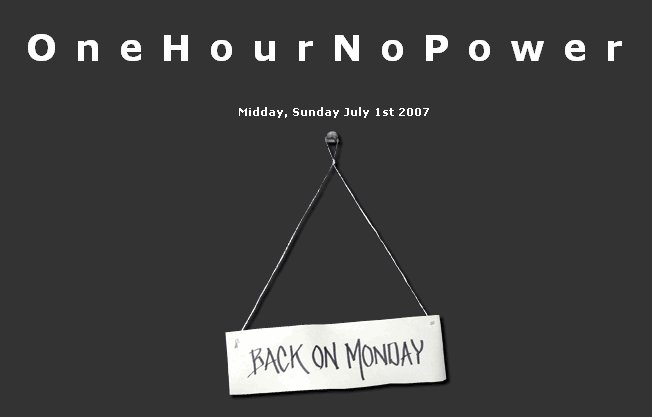
I came across an interesting article on the website for the Today Show yesterday where they highlight some lessons from the "Live Earth Global Warming Survival Handbook," which offers 77 tips on how to make an impact on the world. On that stands out from this article and also has been getting recent attention is what the piece terms "phantom power" – namely, the power that is drained by your electronic devices while they are in standby mode. It points to what I believe should be a shift in how we all think about all social marketing campaigns that relate to energy usage and global warming. It’s not about reducing consumption, it’s about reducing waste. Reducing what we use means a sacrifice, which people may or may not take. Reducing waste means getting smarter and more efficient. It means saving money. And best of all, it means no (or little) sacrifice. Am I saying we should tell people to use all the energy they want as long as they use it? Of course not. But in a culture where "me" usually comes before "you" … reducing waste is a message that gives the impression you can do good for the world without sacrificing anything. That may not be true, but it certainly makes for more compelling marketing.






WE RECENTLY REMOVED COMMENTING - LEARN WHY HERE >